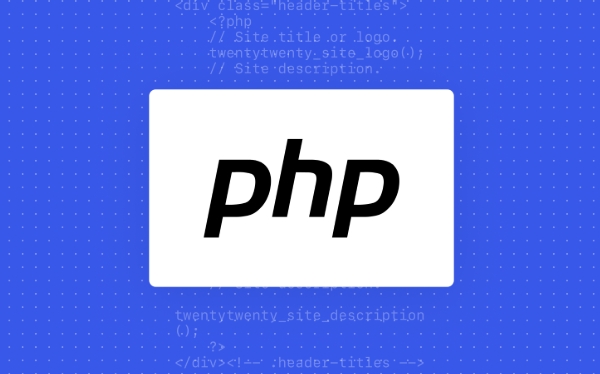In PHP, there are two most commonly used methods to compare whether two strings are equal and ignore case: one is to directly use the strcasecmp() function to perform case-insensitive comparisons, if the return value is 0, it means equality; the other is to convert the two strings into lowercase or uppercase through strtolower() or strtoupper() and then use === for comparison. In addition, you need to pay attention to coding issues in spaces, special symbols and multi-language environments when processing. If necessary, you should use trim() to clean the string or use multi-byte functions such as mb_strtolower() to ensure the correct conversion.

Comparing whether two strings are equal is actually a very common requirement in PHP, such as verifying usernames, processing user input, or doing search matches. PHP provides several convenient functions to achieve this, and you don't need to turn lowercase or uppercase before making judgments.

Use strcasecmp() function
This is the most direct way. strcasecmp() is a function specially used to perform case-insensitive string comparisons.
It returns three possible values:

-
0: means that two strings are equal (ignoring upper and lower case) - Less than
0: means that the first string is earlier alphabetical - Greater than
0: means that the second string is earlier in alphabetical order
Example:
if (strcasecmp('Hello', 'HELLO') === 0) {
echo 'strings are equal';
} else {
echo 'unequal';
}The advantage of this method is that the code is concise and the logic is clear and there is no need for additional conversions.

Use strtolower() or strtoupper() to cooperate ===
If you don't want to use strcasecmp() , you can also convert both strings to lowercase or uppercase before comparing them.
if (strtolower('Hello') === strtolower('HELLO')) {
echo 'equal';
} The advantage of this method is that it is logically intuitive, which is especially suitable for novices to understand. But be aware that some special characters (such as accented letters) may have different conversion results under different encodings, and you may want to consider using multibyte functions (such as mb_strtolower() ).
Notes and FAQs
Sometimes you may encounter some "pits", such as:
- The string contains spaces or special symbols, which make the surface look the same but the actual content is different
- The case conversion behavior is inconsistent in different locales (for example, the "I" and "i" conversion rules in Turkish are different)
- If you are dealing with non-ASCII characters, it is recommended to use
mb_strtolower()and specify the correct encoding
For example:
// Wrong way: the original string has spaces or hidden character $str1 = " hello ";
$str2 = "HELLO";
if (strcasecmp(trim($str1), $str2) === 0) {
// The front and back spaces were correctly processed} Therefore, if the data source is uncertain, it is best to clean up the string content first, such as using trim() to remove spaces, or replacing unnecessary characters with regulars.
Basically that's it.
The above is the detailed content of PHP compare two strings case-insensitively. For more information, please follow other related articles on the PHP Chinese website!

Hot AI Tools

Undress AI Tool
Undress images for free

Undresser.AI Undress
AI-powered app for creating realistic nude photos

AI Clothes Remover
Online AI tool for removing clothes from photos.

Clothoff.io
AI clothes remover

Video Face Swap
Swap faces in any video effortlessly with our completely free AI face swap tool!

Hot Article

Hot Tools

Notepad++7.3.1
Easy-to-use and free code editor

SublimeText3 Chinese version
Chinese version, very easy to use

Zend Studio 13.0.1
Powerful PHP integrated development environment

Dreamweaver CS6
Visual web development tools

SublimeText3 Mac version
God-level code editing software (SublimeText3)

Hot Topics
 PHP Variable Scope Explained
Jul 17, 2025 am 04:16 AM
PHP Variable Scope Explained
Jul 17, 2025 am 04:16 AM
Common problems and solutions for PHP variable scope include: 1. The global variable cannot be accessed within the function, and it needs to be passed in using the global keyword or parameter; 2. The static variable is declared with static, and it is only initialized once and the value is maintained between multiple calls; 3. Hyperglobal variables such as $_GET and $_POST can be used directly in any scope, but you need to pay attention to safe filtering; 4. Anonymous functions need to introduce parent scope variables through the use keyword, and when modifying external variables, you need to pass a reference. Mastering these rules can help avoid errors and improve code stability.
 How to handle File Uploads securely in PHP?
Jul 08, 2025 am 02:37 AM
How to handle File Uploads securely in PHP?
Jul 08, 2025 am 02:37 AM
To safely handle PHP file uploads, you need to verify the source and type, control the file name and path, set server restrictions, and process media files twice. 1. Verify the upload source to prevent CSRF through token and detect the real MIME type through finfo_file using whitelist control; 2. Rename the file to a random string and determine the extension to store it in a non-Web directory according to the detection type; 3. PHP configuration limits the upload size and temporary directory Nginx/Apache prohibits access to the upload directory; 4. The GD library resaves the pictures to clear potential malicious data.
 Commenting Out Code in PHP
Jul 18, 2025 am 04:57 AM
Commenting Out Code in PHP
Jul 18, 2025 am 04:57 AM
There are three common methods for PHP comment code: 1. Use // or # to block one line of code, and it is recommended to use //; 2. Use /.../ to wrap code blocks with multiple lines, which cannot be nested but can be crossed; 3. Combination skills comments such as using /if(){}/ to control logic blocks, or to improve efficiency with editor shortcut keys, you should pay attention to closing symbols and avoid nesting when using them.
 How Do Generators Work in PHP?
Jul 11, 2025 am 03:12 AM
How Do Generators Work in PHP?
Jul 11, 2025 am 03:12 AM
AgeneratorinPHPisamemory-efficientwaytoiterateoverlargedatasetsbyyieldingvaluesoneatatimeinsteadofreturningthemallatonce.1.Generatorsusetheyieldkeywordtoproducevaluesondemand,reducingmemoryusage.2.Theyareusefulforhandlingbigloops,readinglargefiles,or
 Tips for Writing PHP Comments
Jul 18, 2025 am 04:51 AM
Tips for Writing PHP Comments
Jul 18, 2025 am 04:51 AM
The key to writing PHP comments is to clarify the purpose and specifications. Comments should explain "why" rather than "what was done", avoiding redundancy or too simplicity. 1. Use a unified format, such as docblock (/*/) for class and method descriptions to improve readability and tool compatibility; 2. Emphasize the reasons behind the logic, such as why JS jumps need to be output manually; 3. Add an overview description before complex code, describe the process in steps, and help understand the overall idea; 4. Use TODO and FIXME rationally to mark to-do items and problems to facilitate subsequent tracking and collaboration. Good annotations can reduce communication costs and improve code maintenance efficiency.
 Quick PHP Installation Tutorial
Jul 18, 2025 am 04:52 AM
Quick PHP Installation Tutorial
Jul 18, 2025 am 04:52 AM
ToinstallPHPquickly,useXAMPPonWindowsorHomebrewonmacOS.1.OnWindows,downloadandinstallXAMPP,selectcomponents,startApache,andplacefilesinhtdocs.2.Alternatively,manuallyinstallPHPfromphp.netandsetupaserverlikeApache.3.OnmacOS,installHomebrew,thenrun'bre
 How to access a character in a string by index in PHP
Jul 12, 2025 am 03:15 AM
How to access a character in a string by index in PHP
Jul 12, 2025 am 03:15 AM
In PHP, you can use square brackets or curly braces to obtain string specific index characters, but square brackets are recommended; the index starts from 0, and the access outside the range returns a null value and cannot be assigned a value; mb_substr is required to handle multi-byte characters. For example: $str="hello";echo$str[0]; output h; and Chinese characters such as mb_substr($str,1,1) need to obtain the correct result; in actual applications, the length of the string should be checked before looping, dynamic strings need to be verified for validity, and multilingual projects recommend using multi-byte security functions uniformly.
 Learning PHP: A Beginner's Guide
Jul 18, 2025 am 04:54 AM
Learning PHP: A Beginner's Guide
Jul 18, 2025 am 04:54 AM
TolearnPHPeffectively,startbysettingupalocalserverenvironmentusingtoolslikeXAMPPandacodeeditorlikeVSCode.1)InstallXAMPPforApache,MySQL,andPHP.2)Useacodeeditorforsyntaxsupport.3)TestyoursetupwithasimplePHPfile.Next,learnPHPbasicsincludingvariables,ech






